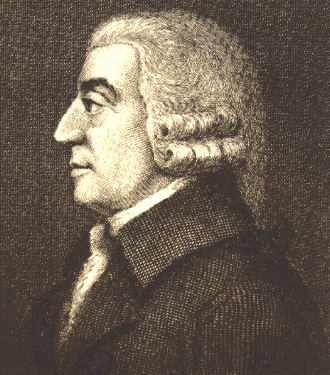Classical Theory
Classical theory was the first modern school of economic thought. It began in 1776 and ended around 1870 with the beginning of neoclassical economics. Notable classical economists include Adam Smith, Jean-Baptiste Say, David Ricardo, Thomas Malthus, and John Stuart Mill . During the period in which classical theory emerged, society was undergoing many changes. The primary economic question involved how a society could be organized around a system in which every individual sought his own monetary gain. It was not possible for a society to grow as a unit unless its members were committed to working together. Classical theory reoriented economics away from individual interests to national interests. Classical economics focuses on the growth in the wealth of nations and promotes policies that create national expansion. During this time period, theorists developed the theory of value or price which allowed for further analysis of markets and wealth. It analyzed and explained the price of goods and services in addition to the exchange value.

Adam Smith
Adam Smith was one of the individuals who helped establish classical economic theory.
Classical Theory Assumptions
Classical theory was developed according to specific economic assumptions:
- Self-regulating markets: classical theorists believed that free markets regulate themselves when they are free of any intervention. Adam Smith referred to the market's ability to self-regulate as the "invisible hand" because markets move towards their natural equilibrium without outside intervention.
- Flexible prices: classical economics assumes that prices are flexible for goods and wages. They also assumed that money only affects price and wage levels.
- Supply creates its own demand: based on Say's Law, classical theorists believed that supply creates its own demand. Production will generate an income enough to purchase all of the output produced. Classical economics assumes that there will be a net saving or spending of cash or financial instruments.
- Equality of savings and investment: classical theory assumes that flexible interest rates will always maintain equilibrium.
- Calculating real GDP: classical theorists determined that the real GDP can be calculated without knowing the money supply or inflation rate.
- Real and Nominal Variables: classical economists stated that real and nominal variables can be analyzed separately.